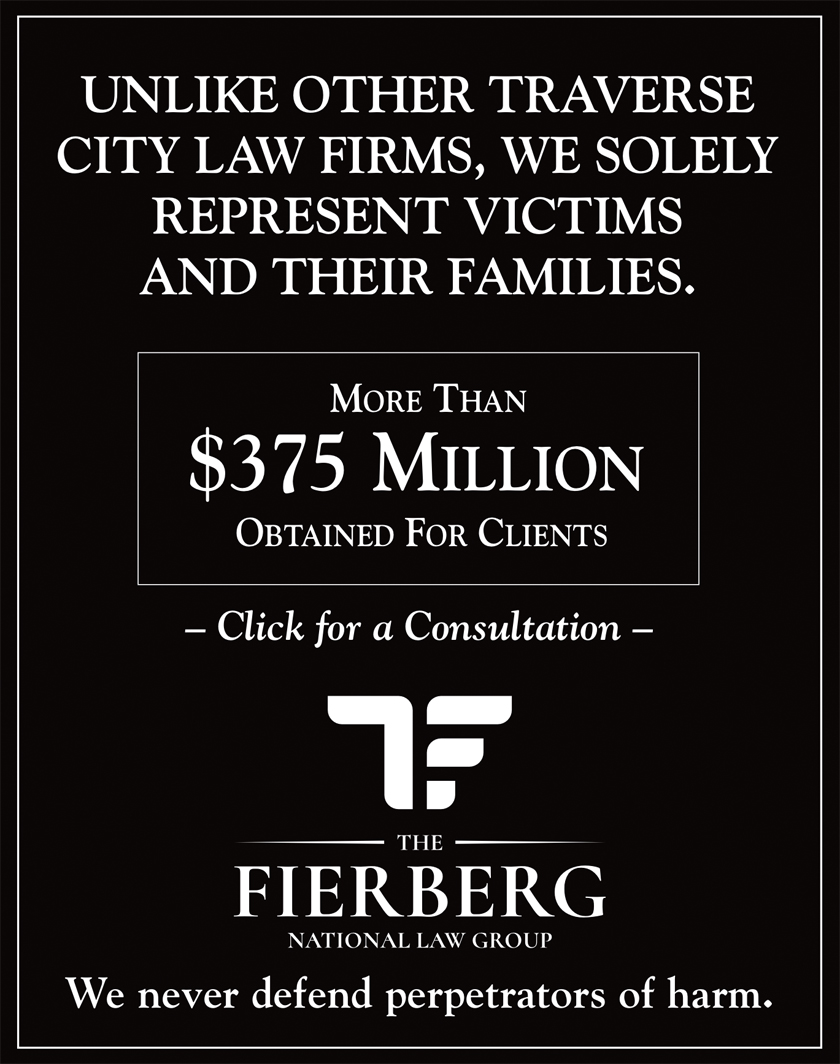
City Readies Ethics Ordinance
By Beth Milligan | Sept. 16, 2025
Traverse City commissioners could soon approve language for a new ethics ordinance that would help guide behavior for staff and elected and appointed officials. Voters will be asked to approve a ballot resolution on November 4 that would amend the city charter to include the new ordinance.
Commissioners discussed the idea of an ordinance back in February – a concept that was raised after former City Manager Liz Vogel initially failed to disclose a friendship with the head of a technology firm she recommended for a city contract. Though Vogel didn’t stand to gain anything financially from the deal – and Grand Traverse County Prosecutor Noelle Moeggenberg reviewed the case and found no criminal wrongdoing – the situation raised questions about how to deal with perceived conflicts of interest or ethical issues among city officials.
The city has a simple two-page conflict-of-interest policy in place that applies to all departments and administrative/bargaining unit employees – but does not cover elected and appointed officials, according to City Attorney Lauren Trible-Laucht. That policy is also limited in scope and primarily prohibits employees from profiting off their city positions or otherwise engaging in financially compromising behavior when conflicts exist between their jobs and personal or outside interests. Beyond that, “the idea of an ethics policy or ordinance has been explored by past commissioners, but it never got much traction,” Trible-Laucht previously said, adding that the current group of commissioners wanted something “much more comprehensive.”
In June, commissioners agreed to put a ballot proposal to voters on November 4 to amend the city charter to add an ethics ordinance. The ballot language is straightforward and will read: “Shall the Charter of the City of Traverse City be amended to require an ethics ordinance which shall apply to all elected and appointed officers, employees, and volunteers of the City of Traverse City?” The exact details of that ordinance, however, are still being hammered out by an ad hoc committee of commissioners – including Mayor Amy Shamroe and Commissioners Mitch Treadwell and Jackie Anderson – who met Monday to review the latest draft, which is expected to go through one more ad hoc meeting before heading to city commissioners for consideration.
The 12-page draft is far more detailed than the city’s existing policy and outlines in-depth expectations related to fiduciary and ethical duties for public servants, who are called to “prioritize the city’s interests above their own and to act with the utmost good faith, trust, and loyalty.” Sections on conflicts of interest, impartiality, and improper use of position describe how officials are expected to avoid any actions which might result in – or create the appearance of – using their offices for private gain, giving improper preferential treatment to any person or organization, making government decisions outside of official channels, privileging themselves or their families, or interfering with law enforcement.
The draft ordinance also contains sections on nepotism, disclosure of confidential information, use of public property, and media relations, including public servants not representing their personal opinions as those of the city. It calls for elected and appointed officers, the city manager, the city attorney, and department heads to sign annual disclosure statements listing their business affiliations and financial interests, with a potential financial penalty imposed for failing to sign such a statement.
The draft also calls for city commissioners to appoint a neutral third party in January each year – called an arbiter – who would handle enforcement of the ethics ordinance. Trible-Laucht tells The Ticker such a person could be an outside lawyer or HR professional in the community, for example. That individual would review ethics complaints to determine their legitimacy, conduct a full findings-of-fact investigation if a potential violation may have occurred, and make a recommendation to city commissioners on whether a violation did occur and a suggested penalty.
While elected officials can’t be removed from office without a recall or gubernatorial intervention, other positions could potentially be terminated because of violating the ordinance. Alternate punishments could include public censure and/or civil infractions or misdemeanors. The ad hoc committee is still finalizing the recommended list of penalties and the process for handling complaints, including appeals of the arbiter’s or city commission’s decisions. The arbiter would also decide if a complaint should be handled by a different party, such as the city’s HR department in the case of a personnel issue that doesn’t rise to an ethics violation or a legal issue that should be turned over to the Michigan Department of Civil Rights.
If city voters were to reject the charter amendment in November, the city could still adopt an ethics ordinance. However, its inclusion in the city charter means the city would be required to maintain such an ordinance – ensuring a future commission couldn’t decide, for instance, it doesn’t want to be bound by an ethics policy anymore and simply eliminate it, Trible-Laucht explains. Anderson says such an ordinance would help set clear, consistent standards for all individuals working on behalf of the city. “We are trying to get all of the public servants on the same page when it comes to ethical expectations for behavior,” she says.
Grand Traverse County commissioners also approved a new ethics policy this spring following months of debate and revisions. As with the city, the county’s new six-page policy replaced an existing document county commissioners felt was insufficient and lacked a proper enforcement mechanism. The new policy has expanded sections for reporting and investigating ethics violations, including initial review by the county administrator or HR director and the potential use of an appointed ethics panel to investigate violations.
Comment






